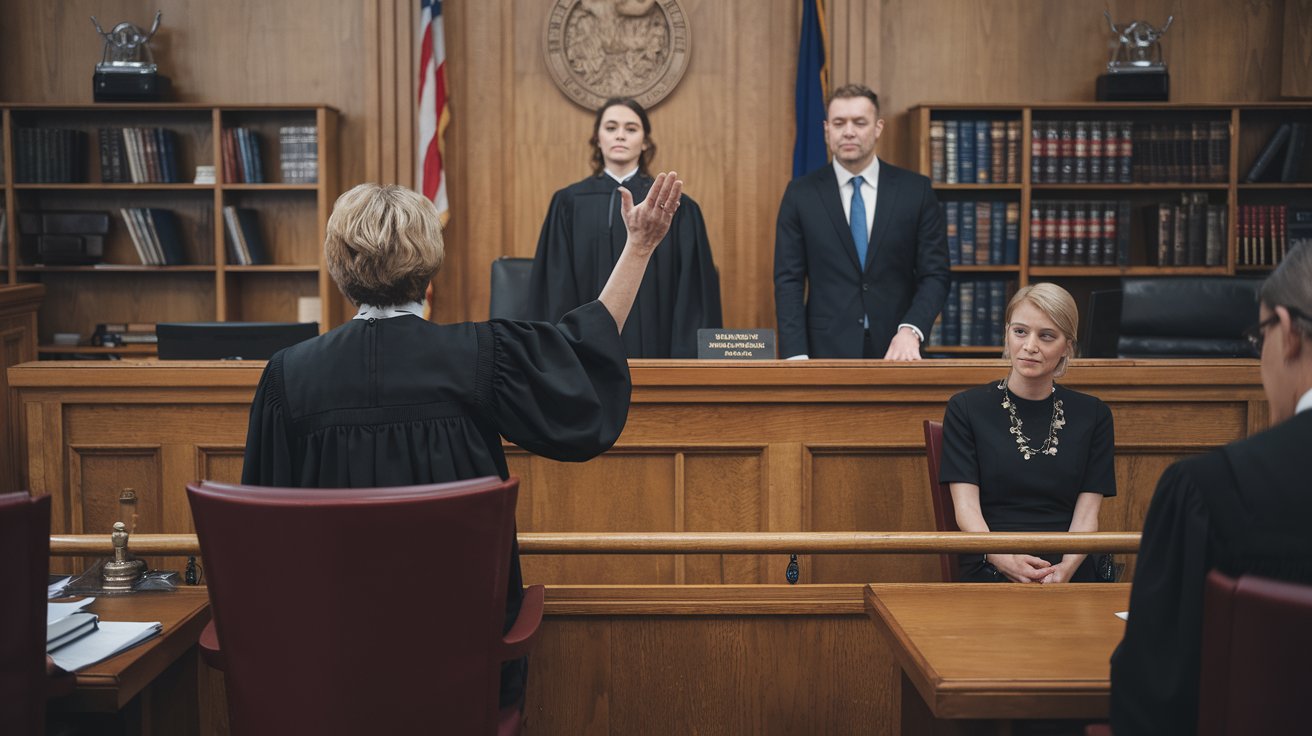
generational equity lawsuit means a court case about fairness between age groups.
generational equity lawsuit is when people say rules or money choices help some ages more than others.
This short guide will use easy words to explain what that means.
You will learn who can start the case, what proof matters, and what might happen next.
generational equity lawsuit can be about things like pensions, taxes, or public services.
generational equity lawsuit affects families, students, and older people in different ways.
Generational Equity Lawsuit: What It Means in Easy Words
A generational equity lawsuit is about fairness between age groups. In simple words, it is a case where people say that rules or programs help one age group more than others. Courts look at these cases to decide if laws or spending plans are fair to everyone, young and old.
People often hear hard words about money and laws, but this idea is simple. If one group of people, like kids or seniors, feels they are not treated fairly, they may go to court. Judges then check if the rules really favor one age over another.
This type of case can touch things like pensions, taxes, education, or health care. It is not about blaming young or old people—it is about making rules that are fair for all. A good lawsuit tries to fix unfair systems without hurting others.
These lawsuits show how a country cares about balance. They help leaders understand when decisions harm one group more than they should. By solving these cases, society can learn to make laws that help every age group equally.
Why People File a Generational Equity Lawsuit
People start a generational equity lawsuit when they feel left out or treated unfairly. For example, older people may think benefits for the young are too big, or younger people may think they pay too many taxes for older programs.
Many families notice when costs rise but help does not. When leaders make big plans for schools or pensions, some groups may feel they carry too much burden. A lawsuit is one way to speak up and ask for balance.
Another reason is when rules last for many years and hurt one group slowly. A law may look fair at first but later cause problems for one generation. People use lawsuits to fix such problems before they get worse.
Sometimes these cases are about respect. People want to know their voice matters and their future is safe. A lawsuit tells leaders, “Listen to all ages, not just one.”
Who Can Start a Generational Equity Lawsuit
Any person or group who feels unfairly treated can begin this kind of lawsuit. Young adults, parents, and even older people can bring these cases if they see rules hurting their generation.
Organizations like student unions or senior groups sometimes lead the way. They collect stories, proof, and experts to show why a rule is not fair. This makes the case stronger when it goes to court.
These cases are not always easy to start. Lawyers check if the person has a legal reason, called “standing,” to sue. The court asks if the rule truly affects that group in a real way.
The goal is not to fight between young and old, but to work together. Anyone can start the case, but it often takes teamwork to win and make laws fair for everyone.
How Courts Look at a Generational Equity Lawsuit
Courts study every part of a generational equity lawsuit to see if unfair treatment is real. They ask questions like: Does this law help only one age group? Does it hurt another age group in a big way?
Judges check reports, numbers, and expert views. They compare how each group is affected and decide if the law or plan needs to change. These cases can take time because courts must be very careful.
Sometimes, courts also ask if the government had a good reason for the rule. If leaders can prove it helps everyone overall, the lawsuit may not win. But if leaders ignored harm to one group, the case becomes strong.
This process shows how law protects people of all ages. Courts try to make sure that big decisions are fair for the present and the future.
What to Do If a Generational Equity Lawsuit Affects Your Family
Understand the Case Clearly
- Read simple guides about what the lawsuit means.
- Ask lawyers or trusted groups to explain how it affects you.
- Make sure you know if your taxes, school, or pension is part of it.
Stay Calm and Informed
- Do not panic; these cases take a long time to finish.
- Follow updates from honest news or court reports.
- Talk with family about changes so everyone feels ready.
Families should stay aware but not fearful. Knowing the facts helps you plan for any change in benefits, taxes, or school rules. Clear talk keeps stress low and helps everyone feel safe.
Where to Get Help with a Generational Equity Lawsuit
Find Trusted Support
- Look for lawyers who know about fairness between generations.
- Ask community centers or senior and student groups for advice.
- Use legal aid programs if you cannot pay for help.
Learn Your Rights
- Understand what proof you need to join or support a case.
- Learn how courts decide if rules are fair or unfair.
- Keep records, papers, or bills that show how the law affects you.
Good help makes a big difference. Experts can guide you through steps and explain what the court expects. By knowing your rights, you can speak up for yourself and your generation in a smart, peaceful way.
Common Claims in a Generational Equity Lawsuit
A generational equity lawsuit often points out when money or benefits are given unevenly. People may say one age group pays more taxes while another group gets more services. This kind of case tries to fix an unfair balance.
Some lawsuits are about pensions or retirement plans. Older people may claim the rules cut their savings, or young workers may say they pay too much to support others. Both sides want laws to treat them fairly.
Education costs can also lead to these lawsuits. Parents and students might feel they pay higher fees without enough help, while older generations get better deals. Courts listen to these stories to see if the problem is real.
These claims are not about blaming other people but about making rules that help everyone. The goal is to make changes so that no group feels left behind.
What Proof Helps in a Generational Equity Lawsuit
Courts need solid evidence to study a generational equity lawsuit. Papers, records, and data show how a law or plan affects different age groups. Clear proof makes the case stronger.
People often use tax bills, pay slips, or pension records to show unfair treatment. Experts may also give reports comparing how money moves between generations. This helps judges see if the law favors one group.
Stories from families are also important. Real-life examples explain how a rule hurts daily life, not just numbers on paper. Lawyers gather both facts and stories to build a complete picture.
When proof is simple and honest, courts can decide more quickly. Strong evidence shows if the law needs to change for fairness.
How a Generational Equity Lawsuit Can Change Rules
A winning generational equity lawsuit can lead to big changes in the law. Governments may rewrite tax plans, pension systems, or school funding. These changes aim to make things fair for all ages.
Sometimes leaders agree to fix the problem before the court even makes a decision. This happens when the case shows clear harm to a generation. Early changes can save time and money.
When courts rule in favor of fairness, it sets an example for future laws. Other leaders see how balance can work and try to make rules better from the start.
Such lawsuits can also start bigger conversations. People learn more about fairness and demand better decisions in the future.
Generational Equity Lawsuit: Easy Stories to Explain the Idea
Think about a playground where only the older kids get new swings. The younger kids still pay for the playground but never get to use the swings. This simple picture shows why a generational equity lawsuit exists.
Another story is about lunch at school. If one group always eats first and gets all the good food while others wait, it feels unfair. People take the same feeling to court when laws favor one age over another.
Families see these problems at home too. Parents may pay extra fees for schools while grandparents enjoy benefits without extra costs. These stories help explain why balance is important.
Using easy examples makes the idea less scary. It helps everyone, even children, understand why fairness between generations matters.
How to Talk to Kids and Parents About a Generational Equity Lawsuit
Children can get confused when they hear about lawsuits and fairness. Using simple words helps them know what is happening. Parents can explain that the case is about sharing rules fairly between young and old.
Families can use drawings or short stories to show how laws work. For example, they can compare money plans to sharing toys at home. This makes the topic easy to follow.
It is also good to listen to children’s questions. They may have smart ideas about what is fair or unfair. Parents can learn from these talks while keeping kids calm.
By talking clearly, families stay strong together. Everyone knows what is happening and feels ready for any change.
Generational Equity Lawsuit: What It Means for the Future
This kind of lawsuit is not only about today. It is also about making sure laws stay fair for future generations. People want to protect their children and grandchildren from unfair costs.
When courts make a fair decision, it can guide leaders for many years. Rules can be shaped so that no group feels heavy pressure while others get big rewards.
Young people benefit when today’s cases fix long-term problems. Older people benefit too, because fair laws protect their retirement without hurting others.
Looking ahead, these lawsuits remind society to think beyond today. Fairness must last for everyone who comes after us.
Lessons from Past Generational Equity Lawsuits
Earlier cases teach us what works and what fails. Some lawsuits have led to strong reforms in taxes and benefits, while others failed because the proof was weak. Learning from these stories helps new cases.
When people prepared with clear evidence, courts listened and made fair changes. But when cases had unclear claims or no data, judges could not rule in their favor.
These lessons show why teamwork matters. Lawyers, families, and experts must join to make the strongest case possible. Past examples light the way forward.
By studying history, people avoid old mistakes and build better arguments for fairness today.
How Generational Equity Lawsuits Affect Everyone
Even if you are not in court, these cases can touch your life. A new law or tax plan can change how much you pay or what benefits you get. Everyone should stay informed.
When fairness improves, society becomes more stable. Young workers feel safer about their future, and older people feel respected in retirement. Balance helps the whole community.
These lawsuits also remind leaders to listen to all voices. A healthy society works best when every generation shares in both costs and rewards.
Knowing how these cases work helps people support fair laws without fear. Everyone wins when rules treat all ages equally.
Conclusion
A generational equity lawsuit shows why rules must be fair for both young and old. These cases teach leaders to share costs and benefits in a balanced way. When courts listen, they help make laws that protect everyone’s future. Families can feel safer knowing fairness is part of the plan.
Such lawsuits are not about fighting but about finding better answers. They remind people that every generation matters and deserves respect. With good proof and teamwork, society can fix unfair systems and build trust among all age groups.
FAQs
Q: What is a generational equity lawsuit?
A: It is a court case where people say laws or money plans are unfair to one age group compared to another.
Q: Who can file a generational equity lawsuit?
A: Any person, family, or group who feels harmed by unfair rules between generations can start the case.
Q: What proof is needed in these lawsuits?
A: Clear papers, numbers, and real stories showing how one group is treated unfairly help the court decide.
Q: How long do these lawsuits take?
A: They can take months or even years because courts study the facts carefully before making a decision.
Q: Can these lawsuits change the law?
A: Yes, if the court finds unfair treatment, it can lead to new rules or better plans for everyone.









